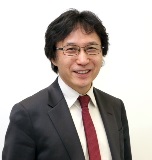
| Speaker | Prof. Jang-Sup Shin (Associate Professor, Department of Economics, National University of Singapore) |
|---|---|
| Time | December 15, 2014 6:30pm-8:30pm (Time and date has changed) |
| Venue | Research Meeting Room 4A, 4th floor, National Graduate Institute for Policy Studies (ACCESS) |
| Sponsor | GRIPS Innovation, Science and Technology Policy Program (GIST) |
| Language | English |
| Fee | Free (Pre-registraion required) |
| Document | Presentation Slides (1.7M) |
It has been commonly accepted that Japan had "lost decades" after the crash of the Tokyo Stock Exchange in 1990 while Korea underwent a successful economic restructuring after the 1997-98 Asian financial crisis. However, Korean is now facing rapid economic slowdown and it appears that it is catching up with Japan in its economic stagnation. This research investigates underlying reasons for the imminent convergence of economic performance between the two countries away from the seemingly divergent performance between the two in the 2000s. By grouping views on the Japan's stagnation into (1) the structuralist view, (2) the balance sheet recession view, and (3) the population bottleneck view, the research attempts to make a systematic comparison of the causes of growth slowdown in the two countries. It also assesses the validity of the 'Abenomics' and 'Choi-nomics' as policy responses to their (imminent) economic stagnation.
 grips.ac.jp. Registration email must include:
1) your name*, 2) institution*, 3) job title, and 4) contact information (email address or phone number)*.
grips.ac.jp. Registration email must include:
1) your name*, 2) institution*, 3) job title, and 4) contact information (email address or phone number)*.